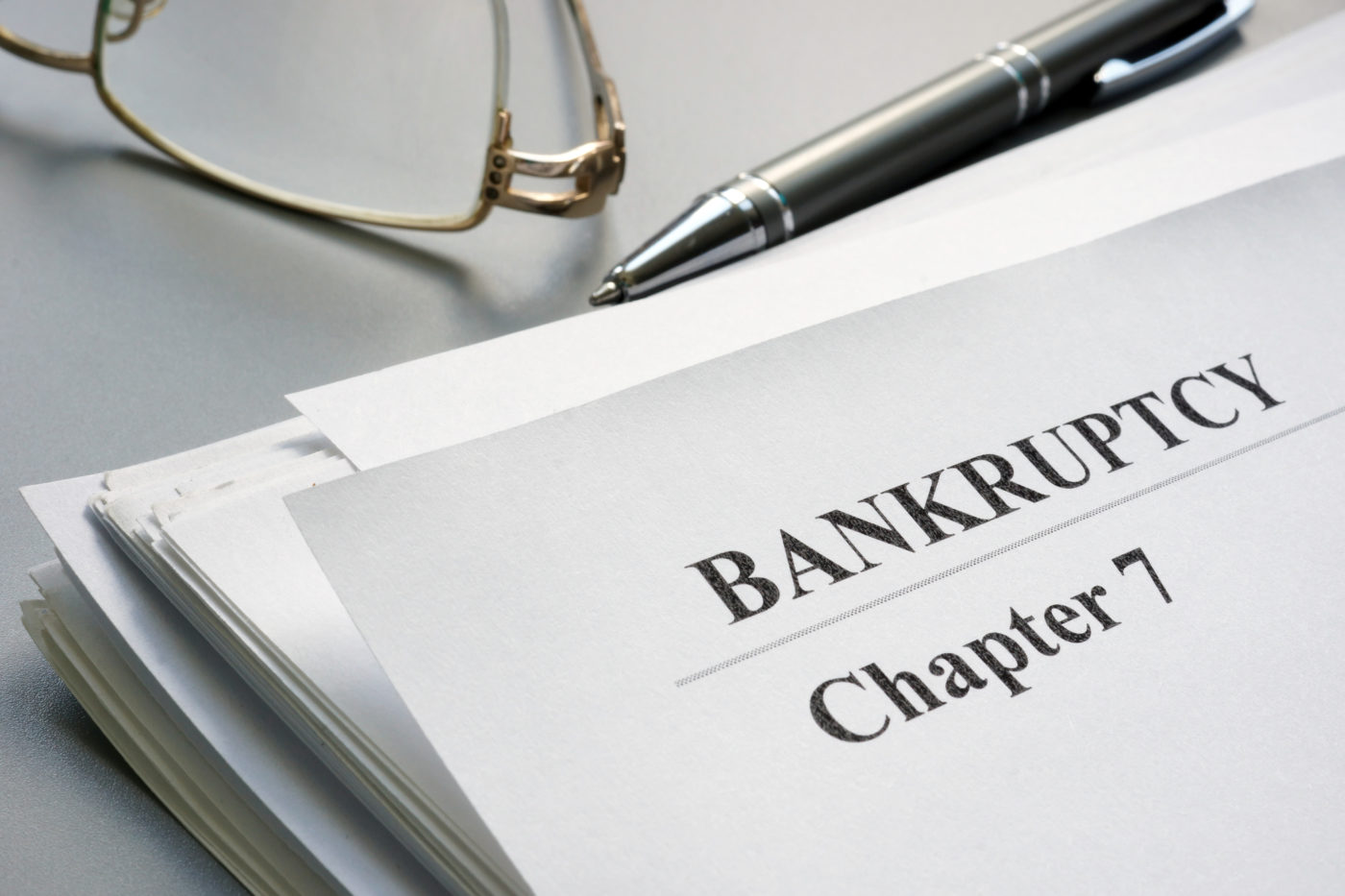Chapter 11 bankruptcy lawyers stand as beacons of hope for individuals and businesses facing financial distress. This comprehensive guide delves into the intricacies of Chapter 11 bankruptcy, empowering you with the knowledge to make informed decisions about your financial future.
Whether you’re seeking to restructure your debt, preserve your assets, or simply gain a deeper understanding of bankruptcy law, this guide provides invaluable insights and practical advice.
Chapter 11 Bankruptcy Process

Chapter 11 bankruptcy is a complex legal process that allows businesses to reorganize their finances and continue operating. It is a powerful tool that can help businesses overcome financial distress and emerge as stronger entities.
The Chapter 11 bankruptcy process typically involves the following steps:
- Filing a Petition: The business files a petition with the bankruptcy court, which includes a list of its assets, debts, and creditors.
- Automatic Stay: Upon filing the petition, an automatic stay goes into effect, which prevents creditors from taking any collection actions against the business.
- Disclosure Statement: The business prepares and files a disclosure statement, which provides information about its financial condition and reorganization plan to creditors.
- Confirmation Hearing: The bankruptcy court holds a confirmation hearing to consider the reorganization plan. Creditors have an opportunity to object to the plan.
- Confirmation Order: If the bankruptcy court approves the reorganization plan, it issues a confirmation order, which makes the plan binding on all creditors.
Timeline for the Chapter 11 Bankruptcy Process
The timeline for the Chapter 11 bankruptcy process can vary depending on the complexity of the case. However, the following is a general timeline:
- Filing the Petition: The business files a petition with the bankruptcy court.
- Automatic Stay: The automatic stay goes into effect upon filing the petition.
- Disclosure Statement: The business prepares and files a disclosure statement within 150 days of filing the petition.
- Confirmation Hearing: The bankruptcy court holds a confirmation hearing within 210 days of filing the petition.
- Confirmation Order: If the bankruptcy court approves the reorganization plan, it issues a confirmation order within 420 days of filing the petition.
Role of the Bankruptcy Court and Trustee
The bankruptcy court plays a critical role in the Chapter 11 bankruptcy process. The court oversees the case and ensures that the process is fair and orderly. The court also approves the reorganization plan.
The bankruptcy trustee is appointed by the bankruptcy court to administer the case. The trustee’s duties include collecting and selling the business’s assets, distributing proceeds to creditors, and overseeing the reorganization process.
Advantages and Disadvantages of Chapter 11 Bankruptcy: Chapter 11 Bankruptcy Lawyer

Chapter 11 bankruptcy provides debtors with the opportunity to reorganize their finances and potentially save their business or personal assets. However, it also comes with certain drawbacks and risks that should be carefully considered before filing.
Benefits of Chapter 11 Bankruptcy
- Automatic Stay: Filing for Chapter 11 bankruptcy triggers an automatic stay, which immediately stops creditors from pursuing collection efforts, including lawsuits, garnishments, and foreclosures.
- Debt Reorganization: Chapter 11 allows debtors to propose a plan to their creditors that Artikels how they will repay their debts over time. This plan can include reducing the amount of debt owed, extending the repayment period, or a combination of both.
- Business Continuity: For businesses, Chapter 11 bankruptcy can provide a valuable opportunity to restructure their operations, reduce expenses, and continue operating while they work to repay their debts.
Drawbacks and Risks of Chapter 11 Bankruptcy
- Costs: Filing for Chapter 11 bankruptcy can be expensive, as debtors are required to pay attorney fees, court costs, and other administrative expenses.
- Loss of Control: Debtors may lose some control over their finances and assets during the Chapter 11 process, as a bankruptcy trustee is appointed to oversee the reorganization.
- Damage to Credit: Filing for Chapter 11 bankruptcy can significantly damage a debtor’s credit score, making it difficult to obtain credit in the future.
- Lengthy Process: Chapter 11 bankruptcy can be a lengthy process, often taking several months or even years to complete.
Comparison to Other Debt Relief Options
Chapter 11 bankruptcy is one of several debt relief options available to individuals and businesses. Other options include Chapter 13 bankruptcy, debt consolidation, and debt settlement.
- Chapter 13 Bankruptcy: Chapter 13 bankruptcy is a reorganization bankruptcy similar to Chapter 11, but it is typically used by individuals with regular income. Under Chapter 13, debtors make regular payments to a bankruptcy trustee, who distributes the funds to creditors.
- Debt Consolidation: Debt consolidation involves taking out a new loan to pay off multiple existing debts. This can simplify debt repayment and potentially lower interest rates, but it does not eliminate debt.
- Debt Settlement: Debt settlement involves negotiating with creditors to reduce the amount of debt owed. This can be a risky option, as it can damage credit scores and lead to legal action if creditors are not satisfied with the settlement terms.
The best debt relief option for a particular individual or business depends on their specific circumstances and financial goals. It is important to consult with an experienced bankruptcy attorney to discuss the pros and cons of each option before making a decision.
Choosing a Chapter 11 Bankruptcy Lawyer

Selecting a competent Chapter 11 bankruptcy lawyer is crucial for a successful bankruptcy process. They guide you through the complexities of the law, protect your rights, and maximize the chances of a favorable outcome.
The role of a Chapter 11 bankruptcy lawyer extends beyond filing paperwork. They negotiate with creditors, represent you in court, and provide ongoing support throughout the process.
Factors to Consider
- Experience: Look for lawyers with extensive experience in Chapter 11 bankruptcy, particularly in your industry or situation.
- Reputation: Research their reputation among peers, clients, and the legal community. Positive feedback and a strong track record are valuable indicators.
- Communication: Choose a lawyer who is responsive, accessible, and communicates effectively. Clear and timely communication is essential.
- Fees: Understand the lawyer’s fee structure and payment arrangements. Transparency and fairness are important.
- Chemistry: Trust and a comfortable working relationship are crucial. Choose a lawyer you feel comfortable with and who understands your goals.
Finding Potential Lawyers, Chapter 11 bankruptcy lawyer
- Referrals: Ask trusted individuals, such as accountants, financial advisors, or previous clients, for recommendations.
- Online Directories: Use reputable online directories that specialize in bankruptcy lawyers.
- Bar Associations: Contact your local bar association for a list of Chapter 11 bankruptcy lawyers.
- Networking Events: Attend industry events or workshops where you can meet and network with potential lawyers.
Evaluating Potential Lawyers
- Schedule Consultations: Meet with several potential lawyers to discuss your case and evaluate their expertise and communication skills.
- Request References: Ask for references from previous clients who can provide feedback on the lawyer’s performance.
- Review Case Histories: If possible, review case histories or testimonials that demonstrate the lawyer’s success in handling similar cases.
Reorganization Plan in Chapter 11 Bankruptcy

A Chapter 11 reorganization plan is a crucial document that Artikels the debtor’s proposal for restructuring their debts and financial affairs. It serves as the roadmap for the debtor’s recovery and provides a framework for creditors to assess the feasibility and fairness of the plan.
The reorganization plan typically includes several key components:
- A description of the debtor’s current financial condition and the reasons for the bankruptcy filing.
- A detailed proposal for restructuring the debtor’s debts, including the amounts and timing of payments to creditors.
- A plan for continuing the debtor’s business operations, including any proposed changes to the company’s structure or management.
- A disclosure statement that provides creditors with information about the debtor’s financial condition and the proposed reorganization plan.
Submitting and Approving a Reorganization Plan
Once the reorganization plan is drafted, it must be submitted to the bankruptcy court for approval. The court will then hold a hearing to consider the plan and allow creditors and other interested parties to object or support it.
To be approved, the reorganization plan must meet certain requirements, including:
- It must be feasible and have a reasonable chance of success.
- It must be fair and equitable to all creditors.
- It must comply with all applicable laws and regulations.
Potential Outcomes of a Reorganization Plan
If the reorganization plan is approved by the bankruptcy court, it becomes binding on all creditors and other parties involved in the bankruptcy case. The debtor can then begin implementing the plan and working towards financial recovery.
There are several potential outcomes of a Chapter 11 reorganization plan:
- The debtor may be able to successfully restructure their debts and continue operating their business.
- The debtor may be forced to liquidate their assets and distribute the proceeds to creditors.
- The debtor may be able to negotiate a settlement with creditors that allows them to avoid liquidation.
Conclusion

Remember, Chapter 11 bankruptcy is a complex legal process, and seeking professional guidance is crucial. By working closely with an experienced Chapter 11 bankruptcy lawyer, you can navigate the challenges ahead with confidence and emerge from financial distress with a renewed sense of stability.
Frequently Asked Questions
What is the role of a Chapter 11 bankruptcy lawyer?
Chapter 11 bankruptcy lawyers guide clients through the legal and financial complexities of Chapter 11 bankruptcy, providing expert advice on debt restructuring, asset protection, and reorganization plans.
What are the benefits of filing for Chapter 11 bankruptcy?
Chapter 11 bankruptcy offers a lifeline for businesses and individuals facing financial distress, allowing them to restructure their debts, protect their assets, and potentially emerge from bankruptcy with a viable financial plan.
How do I choose a Chapter 11 bankruptcy lawyer?
When selecting a Chapter 11 bankruptcy lawyer, consider their experience, reputation, fees, and communication style. It’s important to find a lawyer who you feel comfortable working with and who understands your specific financial situation.

